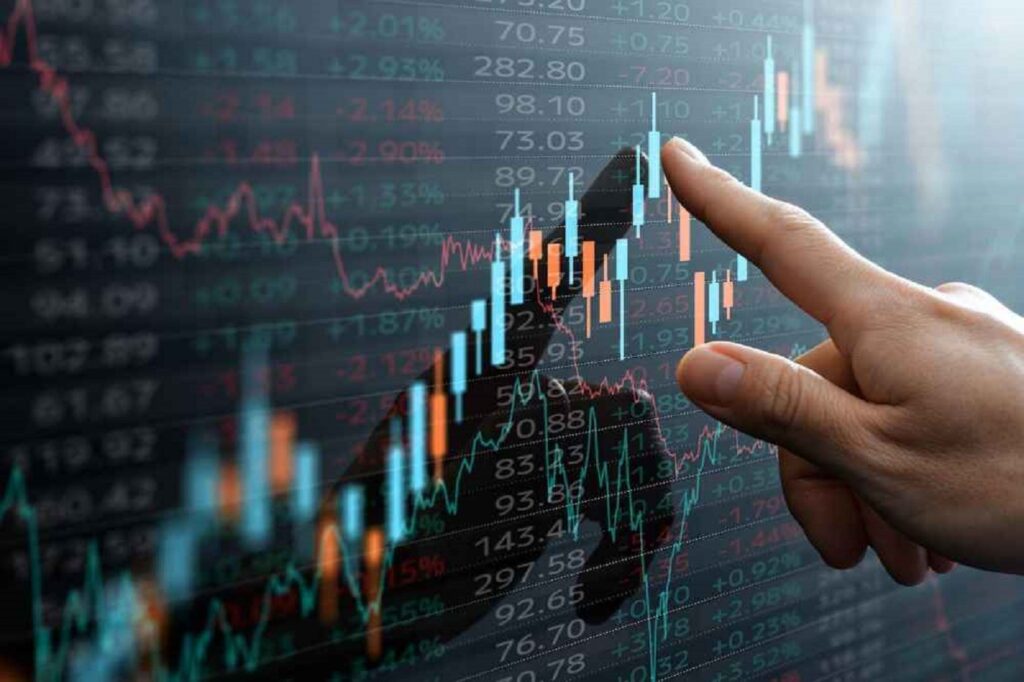
Investors debate if the AI surge is a revolution or a bubble: Investors In the intricate realm of financial markets, the distinction between a revolutionary shift and a market bubble often boils down to time and patience – two commodities notoriously scarce on Wall Street. As the artificial intelligence (AI) boom extends its reach into various facets of our professional lives, propelling stocks to unprecedented heights, investors grapple with the dual questions of AI’s authenticity and the repercussions if the enthusiasm proves unfounded.
Recent market movements exemplify this dilemma, with shares of Nvidia skyrocketing, boasting an upward trajectory of approximately 240% in the past year. This surge is not exclusive to Nvidia; AMD has witnessed a 126.5% increase, and Taiwan Semiconductor Manufacturing Co stock has soared nearly 50% during the same period. The so-called “Magnificent Seven" tech stocks – Apple, Microsoft, Nvidia, Amazon, Google, Meta, and Tesla – collectively dominate the S&P 500, reflecting a 55% collective surge over the past year.
Large corporations are strategically reallocating resources, making substantial investments in AI technology, and, at times, implementing workforce reductions in anticipation of enhanced productivity through automation. JPMorgan Chase CEO Jamie Dimon asserts that AI is not mere hype; the bank has around 200 researchers dedicated to generative AI. Dimon, typically skeptical of new technologies, emphasized the reality of AI, stating, “It's real. People are deploying it at different speeds, but it will handle a tremendous amount of stuff.”
However, not all market observers share this unbridled optimism. Torsten Slok, Chief Economist at Apollo Global Management, points out that the top 10 companies in the S&P 500 are more overvalued now than during the tech bubble in the mid-1990s, as indicated by their price-to-earnings ratios. Yung-Yu Ma, Chief Investment Officer at BMO Wealth Management, notes that the market seems impervious to negative factors, creating a Teflon stock market that remains resilient despite higher-than-expected inflation and delayed expectations for interest rate cuts by the Federal Reserve.
The prevailing narrative revolves around the belief that AI can unleash both spending and productivity, captivating market attention. However, Ma raises concerns about an excessive focus on AI, cautioning that the current hype may surpass what AI can realistically deliver in the near term for productivity gains. Drawing parallels to the tech boom of the mid-1990s, Ma suggests that the ensuing productivity boom at that time propelled equities for years, despite relatively high interest rates.
Examining the specifics, some shareholders express apprehension regarding Big Tech’s substantial investments in AI. Apple, for instance, reportedly plans to allocate $1 billion annually to generative AI. Two major Apple investors, Norges Bank Investment Management and Legal & General, support a resolution demanding the disclosure and reporting of AI-related risks. This proposal, presented by the AFL-CIO union federation, requests Apple to disclose ethical guidelines regarding the use of AI technology.
In response, Apple sought to skip the vote, arguing that shareholders were overly controlling. However, the SEC disagreed, stating that the proposal transcends ordinary business matters and does not seek to micromanage the company. This regulatory stance underscores the increasing importance of transparency and ethical considerations in the AI landscape.
Shifting gears, a recent report from Fidelity Investments sheds light on the state of 401(k) investments. The average 401(k) balance rose to $118,600 at the end of the fourth quarter, marking a 14% increase for the year. Among Gen Xers, those who have been saving consistently for at least 15 years boast an average 401(k) balance exceeding $500,000. Fidelity also reports a notable increase in the number of 401(k) accounts with balances of at least $1 million, rising by 20% in the fourth quarter and 41% for the entire year. This positive trend can be attributed not only to market performance but also to proactive savings habits, with 27% of plan participants increasing their contribution rates throughout the year.
Meanwhile, Beyond Meat, a company facing challenges amid falling demand and rising costs, experienced a surge in its stock after unveiling a turnaround plan in its fourth-quarter financial report. Beyond Meat reported a 7.8% decrease in year-over-year net revenues to $73.7 million, surpassing Wall Street’s expectations for the quarter. The company’s CEO, Ethan Brown, outlined initiatives to cut operating expenses by at least $70 million in 2024, emphasizing a transition to a leaner operating structure. As part of these measures, Beyond Meat plans to discontinue its jerky line, redirecting resources towards products deemed to have higher profitable growth potential.
The market responded positively to Beyond Meat’s strategic shift, with the stock surging over 70% in after-hours trading. This development highlights the importance of not only adapting to market dynamics but also communicating a clear strategy to investors.
In conclusion, the intricate interplay of AI, market dynamics, economic indicators, and corporate strategies defines the current financial landscape. Investors navigate a terrain where optimism about AI coexists with concerns about market valuations. Ethical considerations in AI investments gain prominence, reflecting the growing influence of socially responsible investing. As companies unveil their financial reports, the market reacts to both positive and challenging developments, emphasizing the need for adaptability and transparency in this ever-evolving landscape. (Investors debate if the AI surge is a revolution or a bubble)

